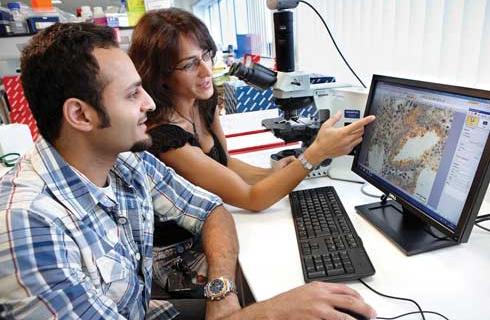国际学生入学条件
A minimum of a 2:1 first degree in a relevant discipline/subject area (e.g. aerospace, automotive, mechanical, electrical, chemical, computing, and manufacturing) with a minimum 60% mark in the Project element or equivalent with a minimum 60% overall module average.
the potential to engage in innovative research and to complete the PhD within a three-year period of study.
a minimum of English language proficiency (IELTS overall minimum score of 6.5).
Also, the candidate is expected to:
Have excellent analytical, reporting and communication skills
Be self-motivated, independent and team player
Be genuine enthusiasm for the subject and technology
Have the willing to publish research findings in international journals
TOEFL
TOEFL iBT (we accept TOEFL iBT, TOEFL iBT Home Edition and TOEFL iBT Paper Edition) - 92 total and minimum skill component scores of 20 reading, 20 listening, 21 speaking and 20 writing.
展开
IDP—雅思考试联合主办方

雅思考试总分
6.5
了解更多
- 雅思总分:6.5
- 托福网考总分:92
- 托福笔试总分:160
- 其他语言考试:PTE Academic UKVI - 65 overall and 62 in all skill components.
课程简介
This PhD project will focus on developing, evaluating, and demonstrating a framework of novel hybrid prognostics solution for selected system use case (e.g. clogging filter, linear actuator, lithium-ion batteries, rotating machinery, aircraft fuel system, APU, and electrical power generation system). A comprehensive test-bed for in-depth studies will be used for experiments for demonstration and evaluation. <br>Prognostics is an essential part of condition-based maintenance (CBM), described as predicting the remaining useful life (RUL) of a system. It is also a key technology for an integrated vehicle health management (IVHM) system that leads to enhance safety, reliability, maintainability and readiness. Generally, prognostics models can be broadly categorised into experience-based models, data-driven models and physics-based models. More recently, hybrid prognostics approaches have been presented, attempting to leverage the advantages of combining the prognostics models in the aforementioned different categories for a better capability of managing the uncertainty related to system complexity and data availability to achieve more accurate RUL estimations
展开

















































